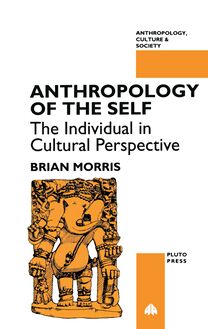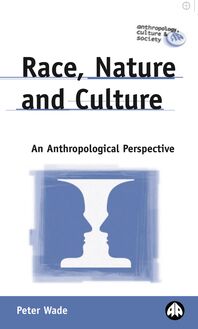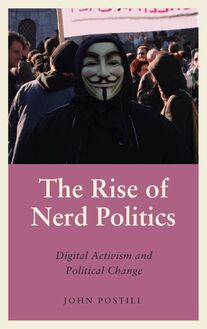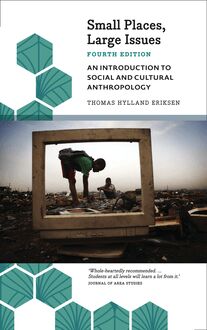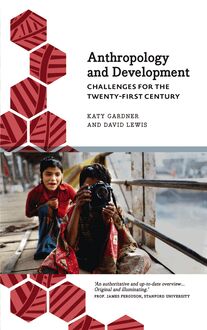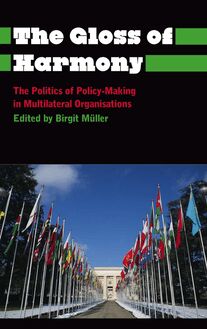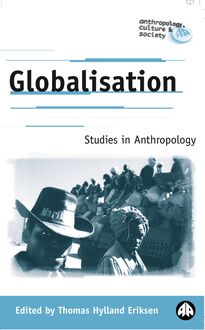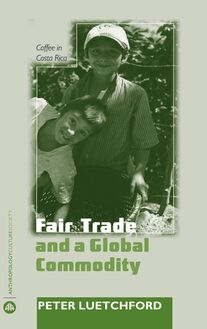-
 Univers
Univers
-
 Ebooks
Ebooks
-
 Livres audio
Livres audio
-
 Presse
Presse
-
 Podcasts
Podcasts
-
 BD
BD
-
 Documents
Documents
-
- Cours
- Révisions
- Ressources pédagogiques
- Sciences de l’éducation
- Manuels scolaires
- Langues
- Travaux de classe
- Annales de BEP
- Etudes supérieures
- Maternelle et primaire
- Fiches de lecture
- Orientation scolaire
- Méthodologie
- Corrigés de devoir
- Annales d’examens et concours
- Annales du bac
- Annales du brevet
- Rapports de stage
La lecture à portée de main
Vous pourrez modifier la taille du texte de cet ouvrage
Découvre YouScribe en t'inscrivant gratuitement
Je m'inscrisCommunity, Cosmopolitanism and the Problem of Human Commonality , livre ebook
Découvre YouScribe en t'inscrivant gratuitement
Je m'inscrisEn savoir plus
Vous pourrez modifier la taille du texte de cet ouvrage
En savoir plus

Description
This volume explores the nature of contemporary sociality. It focuses on the ethical, organisational and emotional claims and opportunities sought or fashioned for mobilising and evading social collectivities in a world of mobile subjects.
Vered Amit and Nigel Rapport present an examination of the tensions and interactions between everyday forms of fluid fellowship, culturally normative claims to identity, and opportunities for realising a universal humanity.
Acknowledgements
Prologue: The Book’s Structure
Nigel Rapport and Vered Amit
PART I: COMMUNITY AND DISJUNCTION: THE CREATIVITY AND UNCERTAINTY OF EVERYDAY ENGAGEMENT
Vered Amit
1. Community as ‘Good to Think With’: The Productiveness of Strategic Ambiguities.
2. Consociation and Communitas: The Ambiguous Charms of the Quotidian
3. Disjuncture as ‘Good to Think With’
4. Mobility and Cosmopolitanism: Frustrated Aspirations towards disjuncture.
Notes
References
PART II: COSMOPOLITANISM: ACTORS, RELATIONS AND INSTITUTIONS BEYOND THE COMMUNITARIAN
Nigel Rapport
Preamble
5. Introduction: The Space of Cosmopolitanism, and the Cosmopolitan Subject
6. Cosmopolitan Living: People of the Air and Global Guests
7. Cosmopolitan Learning: Diffusion, Openness and Irony
8. Cosmopolitan Planning: Anyone, Society and Community
9. Epilogue: Cosmopolitanism and Culture
Notes
References
PART III: DIALOGUE
10. Amit Responds to Rapport: When cosmopolitan rights are not enough
11. Rapport Responds to Amit: On the analytical need to deconstruct 'community'
Index
Sujets
Informations
| Publié par | Pluto Press |
| Date de parution | 14 juin 2012 |
| Nombre de lectures | 0 |
| EAN13 | 9781849647106 |
| Langue | English |
| Poids de l'ouvrage | 1 Mo |
Informations légales : prix de location à la page 0,1850€. Cette information est donnée uniquement à titre indicatif conformément à la législation en vigueur.
Extrait
Community, Cosmopolitanism and the Problem of Human Commonality
Anthropology, Culture and Society
Series Editors:
Professor Vered Amit, Concordia University and
Dr Jon P. Mitchell, University of Sussex
Recent titles:
Claiming Individuality: The Cultural Politics of Distinction
EDITED BY VERED AMIT AND NOEL DYCK
Home Spaces, Street Styles: Contesting Power and Identity in a South African City
LESLIE J. BANK
In Foreign Fields: The Politics and Experiences of Transnational Sport Migration
THOMAS F. CARTER
On the Game: Women and Sex Work
SOPHIE DAY
Slave of Allah: Zacarias Moussaoui vs the USA
KATHERINE C. DONAHUE
A World of Insecurity: Anthropological Perspectives on Human Security
EDITED BY THOMAS ERIKSEN, ELLEN BAL AND OSCAR SALEMINK
A History of Anthropology
THOMAS HYLLAND ERIKSEN AND FINN SIVERT NIELSEN
Ethnicity and Nationalism: Anthropological Perspectives Third Edition
THOMAS HYLLAND ERIKSEN
Globalisation: Studies in Anthropology
EDITED BY THOMAS HYLLAND ERIKSEN
Small Places, Large Issues: An Introduction to Social and Cultural Anthropology Third Edition
THOMAS HYLLAND ERIKSEN
What Is Anthropology?
THOMAS HYLLAND ERIKSEN
Discordant Development: Global Capitalism and the Struggle for Connection in Bangladesh
KATY GARDNER
Anthropology, Development and the Post-Modern Challenge
KATY GARDNER AND DAVID LEWIS
Corruption: Anthropological Perspectives
EDITED BY DIETER HALLER AND CRIS SHORE
Anthropology’s World: Life in a Twenty-First Century Discipline
ULF HANNERZ
Humans and Other Animals: Cross-Cultural Perspectives on Human–Animal Interactions
SAMANTHA HURN
Culture and Well-Being: Anthropological Approaches to Freedom and Political Ethics
EDITED BY ALBERTO CORSÍN JIMÉNEZ
State Formation: Anthropological Perspectives
EDITED BY CHRISTIAN KROHN-HANSEN AND KNUT G. NUSTAD
Cultures of Fear: A Critical Reader
EDITED BY ULI LINKE AND DANIELLE TAANA SMITH
Fair Trade and a Global Commodity: Coffee in Costa Rica
PETER LUETCHFORD
The Will of the Many: How the Alterglobalisation Movement is Changing the Face of Democracy
MARIANNE MAECKELBERGH
The Aid Effect: Giving and Governing in International Development
EDITED BY DAVID MOSSE AND DAVID LEWIS
Cultivating Development: An Ethnography of Aid Policy and Practice
DAVID MOSSE
Terror and Violence: Imagination and the Unimaginable
EDITED BY ANDREW STRATHERN, PAMELA J. STEWART AND NEIL L. WHITEHEAD
Anthropology, Art and Cultural Production
MARUŠKA SVAŠEK
Race and Ethnicity in Latin America Second Edition
PETER WADE
Race and Sex in Latin America
PETER WADE
The Capability of Places: Methods for Modelling Community Response to Intrusion and Change
SANDRA WALLMAN
Anthropology at the Dawn of the Cold War: The Influence of Foundations, McCarthyism and the CIA
EDITED BY DUSTIN M. WAX
Learning Politics from Sivaram: The Life and Death of a Revolutionary Tamil Journalist in Sri Lanka
MARK P. WHITAKER
First published 2012 by Pluto Press 345 Archway Road, London N6 5AA
www.plutobooks.com
Distributed in the United States of America exclusively by Palgrave Macmillan, a division of St. Martin’s Press LLC, 175 Fifth Avenue, New York, NY 10010
Copyright © Vered Amit and Nigel Rapport 2012
The right of Vered Amit and Nigel Rapport to be identified as the authors of this work has been asserted by them in accordance with the Copyright, Designs and Patents Act 1988.
British Library Cataloguing in Publication Data A catalogue record for this book is available from the British Library
ISBN 978 0 7453 2904 8 Hardback ISBN 978 0 7453 2903 1 Paperback ISBN 978 1 84964 709 0 PDF ISBN 978 1 84964 711 3 Kindle ISBN 978 1 84964 710 6 ePub
Library of Congress Cataloging in Publication Data applied for
This book is printed on paper suitable for recycling and made from fully managed and sustained forest sources. Logging, pulping and manufacturing processes are expected to conform to the environmental standards of the country of origin.
10 9 8 7 6 5 4 3 2 1
Designed and produced for Pluto Press by Chase Publishing Services Ltd Typeset from disk by Stanford DTP Services, Northampton, England Simultaneously printed digitally by CPI Antony Rowe, Chippenham, UK and Edwards Bros in the United States of America
This book is dedicated to Anthony P. Cohen for his generosity and scholarship.
Contents
Series Preface
Acknowledgements
Prologue: The Book’s Structure
Nigel Rapport and Vered Amit
PART I COMMUNITY AND DISJUNCTURE: THE CREATIVITY AND UNCERTAINTY OF EVERYDAY ENGAGEMENT
Vered Amit
1 Community as ‘Good to Think With’: The Productiveness of Strategic Ambiguities
2 Consociation and Communitas : The Ambiguous Charms of the Quotidian
3 Disjuncture as ‘Good to Think With’
4 Mobility and Cosmopolitanism: Frustrated Aspirations towards Disjuncture
Notes
References
PART II COSMOPOLITANISM: ACTORS, RELATIONS AND INSTITUTIONS BEYOND THE COMMUNITARIAN
Nigel Rapport
Preamble
5 The Space of Cosmopolitanism and the Cosmopolitan Subject
6 Cosmopolitan Living: People of the Air and Global Guests
7 Cosmopolitan Learning: Diffusion, Openness and Irony
8 Cosmopolitan Planning: Anyone , Society and Community
9 Epilogue: Cosmopolitanism and Culture
Notes
References
PART III DIALOGUE Vered Amit and Nigel Rapport
10 Vered Amit Responds to Nigel Rapport
11 Nigel Rapport Responds to Vered Amit
References
Index
Series Preface
Anthropology is a discipline based upon in-depth ethnographic works that deal with wider theoretical issues in the context of particular, local conditions – to paraphrase an important volume from the series: large issues explored in small places . This series has a particular mission: to publish work that moves away from an old-style descriptive ethnography that is strongly area-studies oriented, and offer genuine theoretical arguments that are of interest to a much wider readership, but which are nevertheless located and grounded in solid ethnographic research. If anthropology is to argue itself a place in the contemporary intellectual world, then it must surely be through such research.
We start from the question: ‘What can this ethnographic material tell us about the bigger theoretical issues that concern the social sciences?’ rather than ‘What can these theoretical ideas tell us about the ethnographic context?’ Put this way round, such work becomes about large issues, set in a (relatively) small place, rather than detailed description of a small place for its own sake. As Clifford Geertz once said, ‘Anthropologists don’t study villages; they study in villages.’
By place, we mean not only geographical locale, but also other types of ‘place’ – within political, economic, religious or other social systems. We therefore publish work based on ethnography within political and religious movements, occupational or class groups, among youth, development agencies, and nationalist movements; but also work that is more thematically based – on kinship, landscape, the state, violence, corruption, the self. The series publishes four kinds of volume: ethnographic monographs; comparative texts; edited collections; and shorter, polemical essays.
We publish work from all traditions of anthropology, and all parts of the world, which combines theoretical debate with empirical evidence to demonstrate anthropology’s unique position in contemporary scholarship and the contemporary world.
Professor Vered Amit
Dr Jon P. Mitchell
Acknowledgements
Chapter 1 ‘Community as "Good to Think With": The Productiveness of Strategic Ambiguities’, first appeared as an article in Anthropologica in 2010 (vol. 52(2): 357–363). Some parts of the subsection ‘The Dispensability of Liminality’, which appears in Chapter 2 ‘Consociation and Communitas : The Ambiguous Charms of the Quotidian’, were first published in an article ‘The Limits of Liminality: Capacities for Change and Transition among Student Travellers’ in Human Nature as Capacity: Transcending Discourse and Classification , edited by Nigel Rapport (New York and Oxford: Berghahn Books, 2010, pp. 54–71).
Chapter 6 is a reworking and extending of some material that appeared in Nigel Rapport’s chapter, ‘The Cosmopolitan Movement of the Global Guest’, in the festschrift volume to Emanuel Marx edited by Esther Hertzog and Haim Hazan and entitled, Serendipity in Anthropological Research: The Nomadic Turn (Ashgate, 2011).
Vered Amit would like to thank Noel Dyck for his careful reading of and comments on her sections of this volume. Thanks also go to Deborah Reed-Danahay, John Postill, Sally Anderson, Philip Moore, Gabriela Vargas-Cetina and Virginia Caputo who, together with Vered Amit, have for several years formed part of a working group discussing concepts of sociality. These exchanges have been an important catalyst for Vered Amit’s analysis of concepts such as community and disjunction. She would also like to thank Caroline Knowles, Karen Fog Olwig, Mariella Pandolfi, Phillip Rousseau and Daphne Winland for their thoughtful commentaries on her article ‘Community as "Good to Think With"’ (which appeared in the journal Anthropologica in 2010).
Nigel Rapport would like to thank those who contributed to the Centre for Cosmopolitan Studies at Concordia University between 2005 and 2007. These included Vered Amit and Christine Jourdan, also Andrew Irving, Nelson Ferguson and Gerrie Casey. Since 2008 there has been a Centre for Cosmopolitan Studies at the University of St Andrews and Nigel Rapport has benefited from the engagement of Huon Wardle and Mark Harris, also Morten Nielsen, Nina Holm Vohnsen, Hideko Mitsui and Laura Jeffery.
Prologue: The Book’s Structure
Nigel Rapport and Vered Amit
In The Trouble with Community: Anthropological Reflections on Collectivity, Movement and Identity (2002), Vered Amit and Nigel Rapport entered into a dialogue that concerned the ideology, th
-
 Univers
Univers
-
 Ebooks
Ebooks
-
 Livres audio
Livres audio
-
 Presse
Presse
-
 Podcasts
Podcasts
-
 BD
BD
-
 Documents
Documents
-
Jeunesse
-
Littérature
-
Ressources professionnelles
-
Santé et bien-être
-
Savoirs
-
Education
-
Loisirs et hobbies
-
Art, musique et cinéma
-
Actualité et débat de société
-
Jeunesse
-
Littérature
-
Ressources professionnelles
-
Santé et bien-être
-
Savoirs
-
Education
-
Loisirs et hobbies
-
Art, musique et cinéma
-
Actualité et débat de société
-
Actualités
-
Lifestyle
-
Presse jeunesse
-
Presse professionnelle
-
Pratique
-
Presse sportive
-
Presse internationale
-
Culture & Médias
-
Action et Aventures
-
Science-fiction et Fantasy
-
Société
-
Jeunesse
-
Littérature
-
Ressources professionnelles
-
Santé et bien-être
-
Savoirs
-
Education
-
Loisirs et hobbies
-
Art, musique et cinéma
-
Actualité et débat de société
- Cours
- Révisions
- Ressources pédagogiques
- Sciences de l’éducation
- Manuels scolaires
- Langues
- Travaux de classe
- Annales de BEP
- Etudes supérieures
- Maternelle et primaire
- Fiches de lecture
- Orientation scolaire
- Méthodologie
- Corrigés de devoir
- Annales d’examens et concours
- Annales du bac
- Annales du brevet
- Rapports de stage
